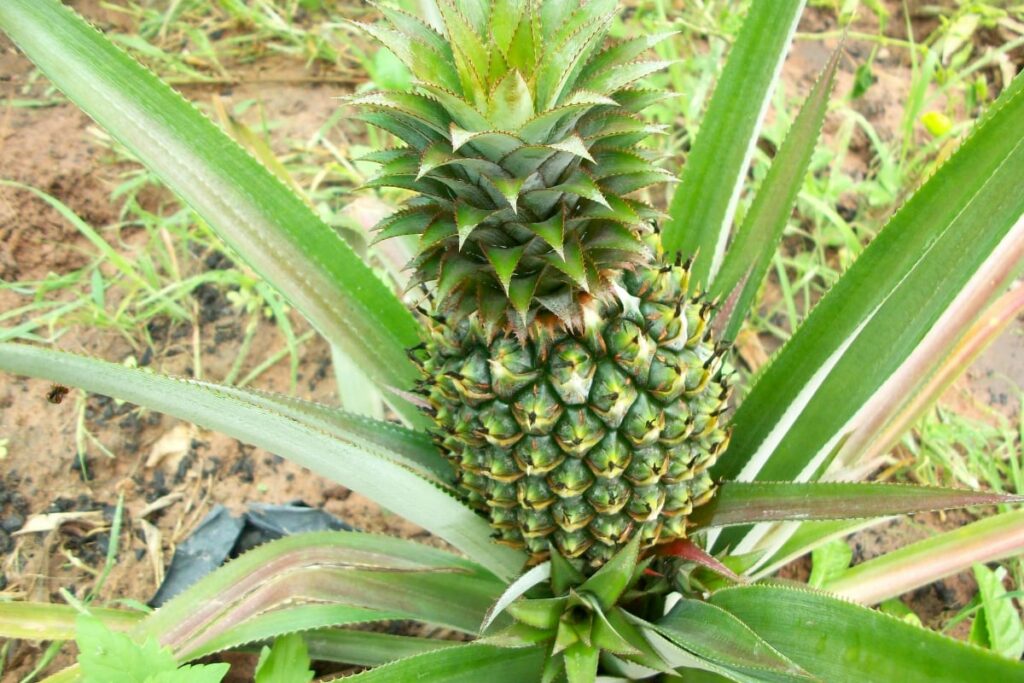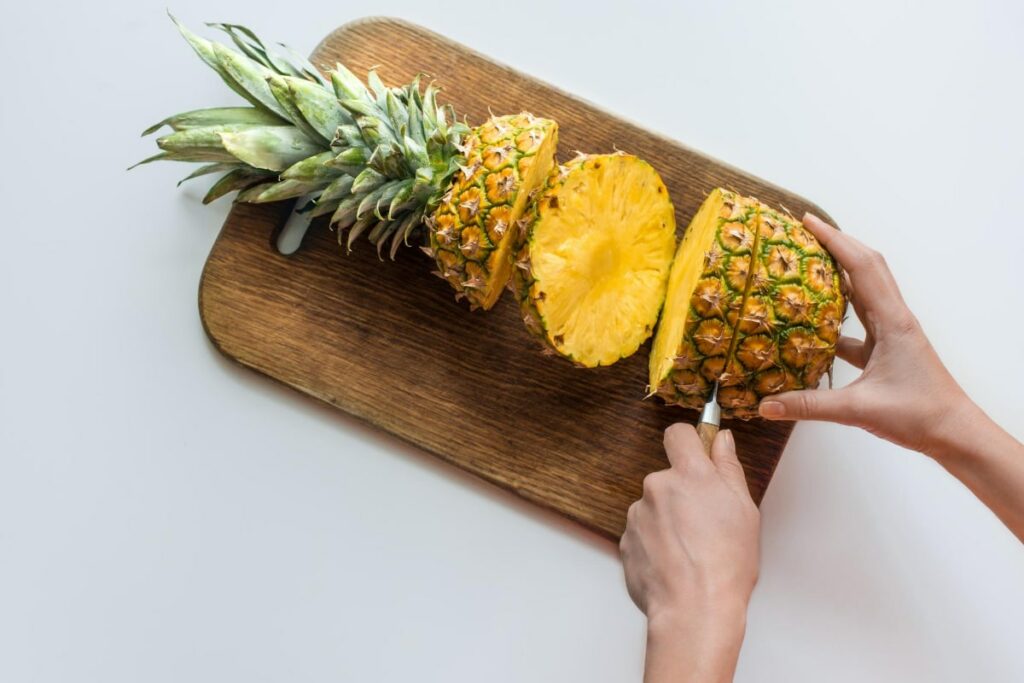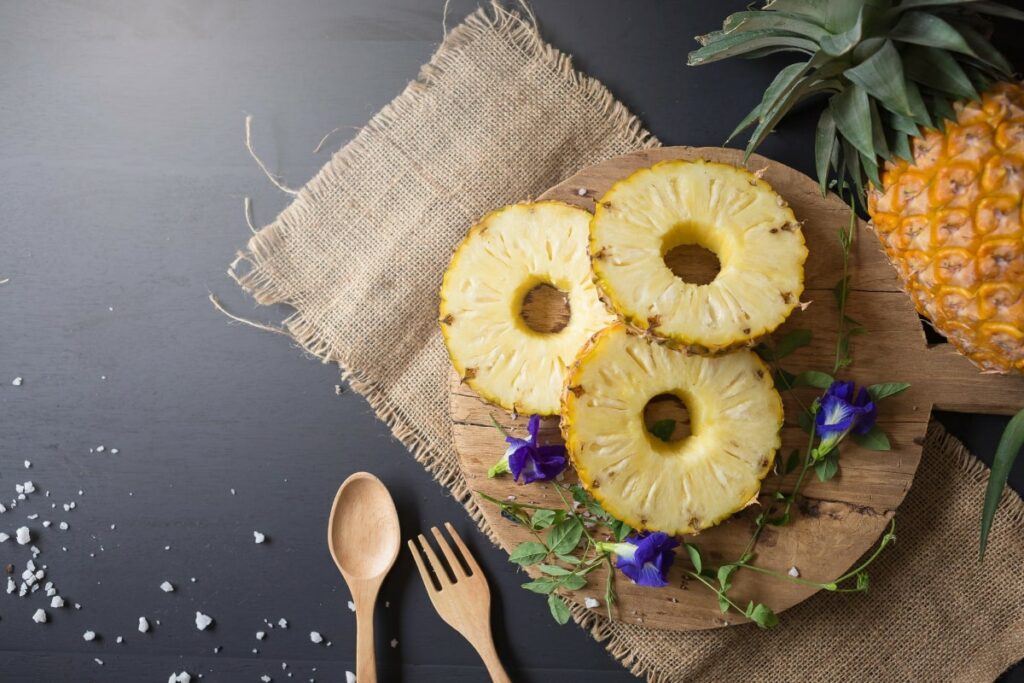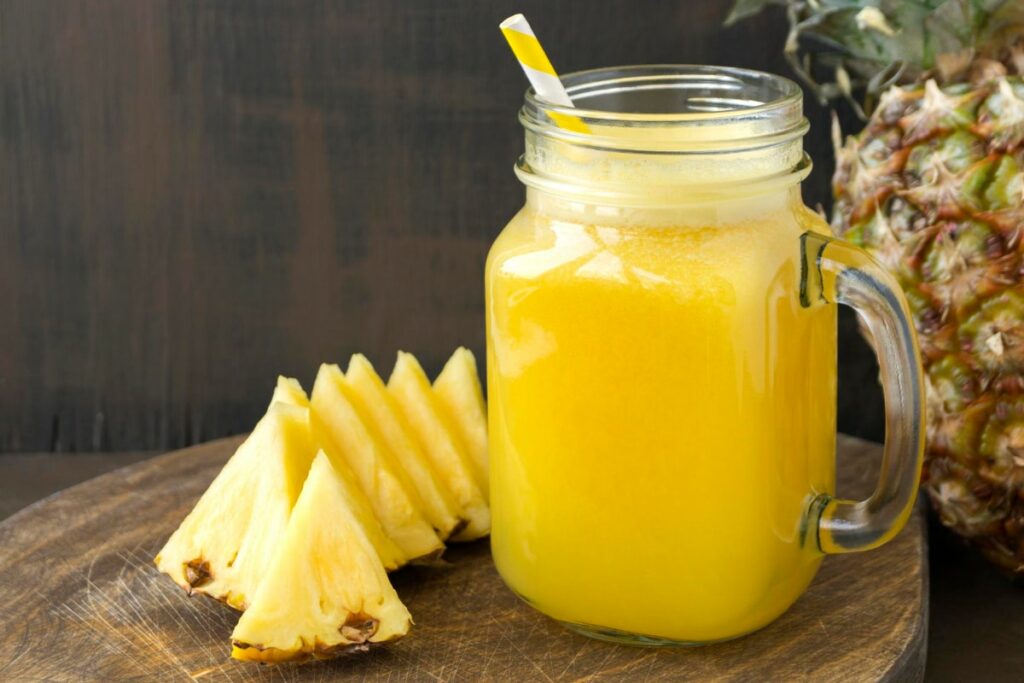Is pineapple a fruit or vegetable? This is an interesting question because it’s not as clear as you’d think.
I found out that pineapple is both a fruit and vegetable. In fact, it’s considered a fruit because it grows from a flowering plant and contains seeds. It also contains lots of nutrients and vitamins that help us stay healthy.
No matter whether you call it a fruit or a vegetable, it’s still pretty darn good for you!
- Related article: Fruit or Vegetable Classification
The Pineapple’s botanical name is Ananas comosus. Pineapple is often identified with the Hawaiian Islands. Yet, pineapples can trace their origins to South America.
The pineapple takes its name from the Tupi language. This is the language of the Tupi people who are indigenous to Brazil. The word “nanas” signifies pine, and the word “comosus” means tufted.

Is Pineapple a Fruit or Vegetable?
Pineapple is neither an apple nor a pine. For science, pineapple is a “multiple”, “aggregate”, or “collective” fruit. Surprised? Let’s look at why.
Botanists classify pineapple as a fruit. Nonetheless, there is a significant amount of debate about this classification. Consider that pineapples do not grow on trees. They are not cultivated from seeds. They grow from leafy plants out of the ground.
Pineapple is a Fruit
Fruit is a plant part that develops from a flower and that contains seeds. Being an aggregate fruit, the pineapple is many flowers fused into a single fruit.
When the pineapple plants produce buds, these buds in turn produce shoots. Each individual shoot will have many blooms. In time, they fuse together. The bumps found on the outer skin of the pineapple are flower remnants.
This process is very like what happens when raspberries and blackberries form. Raspberries and blackberries need pollination, whereas the pineapple can produce fruit without pollination.
The more common commercial varieties of pineapple are “self-incompatible”. This means their pollen cannot fertilize other plants of the same variety.
Growers cultivate different varieties next to one another. Hopefully, these will produce blooms together at the same time. Otherwise, the plant produces non-fertilized seedless fruit.
Most plants will need fertilization to produce fruits. The pineapple, like the banana, is a parthenocarpic fruit. This type of fruit will develop without the flower’s ovary being fertilized.
Most commercial growers will use suckers, for the pineapple cultivation of crops.
Labeled as a “multiple” fruit, the pineapple consists of many berries. This group of berries has fused together to become what we recognize as a pineapple. Hence, the pineapple is not a single fruit but actually many fruits within a single body.

Pineapple is a Vegetable
The technical definition for vegetables is an edible part of a plant. In this sense, pineapples qualify as a vegetable. But if you consider this definition, then all fruits are vegetables.
Pineapples are often used when cooking, especially in Asian cuisines. Pineapple fried rice is a popular dish, as well as Hawaiian style pizza with fresh pineapples as a topping.
Freshly-squeezed pineapple juice is also a favorite beverage. It is refreshing, healthy, and low in calories.
Do Pineapples Have Seeds?
Although not used for cultivation, pineapples do produce tiny black seeds sometimes. Pineapple seeds sit below the peel.
So, the pineapple meets both of the requirements to classify it as a fruit.
Is the Pineapple a Citrus Fruit?
The pineapple is not considered a citrus fruit, even though it shares similarities with citrus fruits. It contains ascorbic acid and citric acid. The pineapple belongs to the bromeliad family of plants.

Pineapple Health Benefits
This tropical fruit can be quite healthy as it packs in nutrients and antioxidants in every bite. Compounds that pineapples contain aid in digestion, support the immune system, and healing.
1. Pineapple Boosts General Health
Pineapple is rich in vitamin C which aids the immune system. It also facilitates iron absorption, development, and growth. The pineapple contains manganese, a terrific antioxidant for fighting inflammation. Inflammation can lead to disease and cancer.
These fruits also boast vitamin B6, thiamine, and copper. These compounds contribute to a healthy metabolism.
2. Pineapple Aids Digestion
Pineapple is often served together with meat. It features a group of digestive enzymes, bromelian, other plants do not contain. These enzymes have the capability to break down protein quicker.
Bromelain also assists with constipation. It is also added to meat tenderizers for its ability to break down meat proteins.
Pineapples also contain 2.3 grams of fiber per cup which is also known to aid digestion.
3. Pineapple Aids in the Fight Against Cancer
Cancer is the uncontrolled growth of cells. It relates to chronic inflammation and oxidative stress. Research demonstrates that pineapple compounds reduce the risk of cancer by reducing inflammation and oxidative stress.
4. Pineapple Helps Arthritis Symptoms
Arthritis generally features joint inflammation. Bromelain’s anti-inflammatory capabilities offer relief from inflammatory arthritis and swelling.
Adding Pineapple to Your Diet
Pineapple is easy to add to your diet at any meal. Eat it at breakfast in smoothies or with yogurt. Make yourself a delicious chicken and pineapple salad for lunch.
Consider pizza, baked ham with pineapples, or Hawaiian burgers for dinner. Pineapple lends itself to many dessert and sweet recipes. Plus, it is great tasting when served and eaten fresh.

Pineapples are Fruits and Vegetables Final Thoughts
All in all, pineapples are popular as a fruit from the botanical angle. It develops from a flower and has the capacity to produce seeds. Don’t be afraid to eat them becuase they have a number of health benefits.
Read more about other fruits and vegetables:

